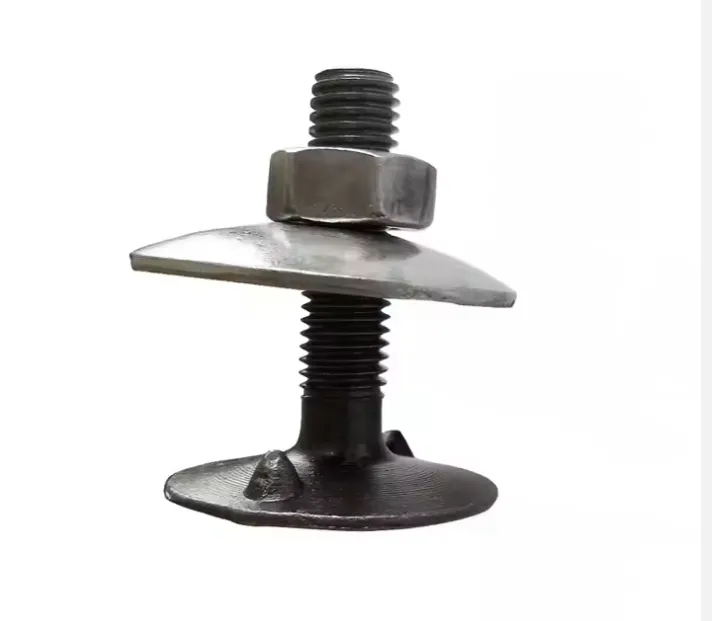

Thin Nylon Washers for Durable and Reliable Performance in Various Applications
Nov . 08, 2024 13:35 Back to list
Thin Nylon Washers for Durable and Reliable Performance in Various Applications
The Essential Role of Thin Nylon Washers in Mechanical Applications
Nylon washers are everyday components that play a crucial role in various mechanical applications. Among them, thin nylon washers hold particular significance due to their lightweight nature, chemical resistance, and the ability to provide excellent insulation and cushioning. In this article, we will explore the characteristics, applications, benefits, and installation methods of thin nylon washers.
Characteristics of Thin Nylon Washers
Thin nylon washers are typically made from nylon 6 or nylon 66, two common types of engineering plastics. These materials are known for their high strength-to-weight ratio, flexibility, and resistance to abrasion, corrosion, and chemicals. Thin nylon washers are often available in various thicknesses, diameters, and colors, catering to a wide array of applications. The thin profile of these washers allows them to fit into tight spaces and minimizes the space taken up in assemblies, which is crucial in many modern designs.
The non-conductive nature of nylon makes it an excellent choice for electrical applications, where grounding and short-circuits are concerns. Additionally, the low friction properties of nylon washers help reduce wear and tear on both the washer and the components they are used with.
Applications of Thin Nylon Washers
The versatility of thin nylon washers leads them to be used in numerous industries. Some common applications include
1. Electrical and Electronics In electrical devices, thin nylon washers are often used to insulate and secure fasteners, preventing electrical shorts and enhancing the durability of connections.
2. Automotive Industry Thin nylon washers are frequently found in automotive assemblies, where they help distribute loads, prevent rattling, and reduce noise. Their resistance to oil and fuel makes them ideal for this environment.
3. Aerospace Due to their lightweight and strong nature, thin nylon washers are used in various aerospace applications, where every gram counts.
4. Plumbing In plumbing systems, these washers can provide effective sealing properties, preventing leaks and ensuring robust joints in water lines.
5. Consumer Products From appliances to toys, thin nylon washers serve to enhance product durability, improve performance, and ensure user safety by providing cushioning and insulation.
Benefits of Using Thin Nylon Washers
The use of thin nylon washers offers several advantages over other materials such as metal or rubber
thin nylon washers

- Lightweight The inherent lightweight nature of nylon helps to reduce the overall weight of the assembly, which is particularly important in applications like aerospace and automotive.
- Corrosion Resistance Unlike metal washers, nylon does not corrode in the presence of moisture or chemicals, contributing to the longevity of the assembly.
- Electrical Insulation For electrical applications, thin nylon washers provide excellent insulation, reducing the risk of short circuits and enhancing the safety of the device.
- Vibration Dampening Nylon washers can absorb vibrations, which is beneficial in preventing mechanical failure due to excessive movement or shock.
- Cost-Effectiveness Thin nylon washers are relatively inexpensive compared to their metal counterparts, making them an economical choice for manufacturers and engineers alike.
Installation and Tips
Proper installation of thin nylon washers is essential for them to perform effectively. Here are some tips to ensure successful installation
1. Select the Correct Size Ensure that the washer fits correctly with the associated fastener. A washer that is too small will not provide adequate load distribution, while a washer that is too large may be difficult to install and secure.
2. Clean Surfaces Before installation, ensure that the surfaces where the washers will be applied are clean and free of debris. This enhances adhesion and performance.
3. Avoid Over-tightening Excessive torque can lead to the deformation of the nylon washer, compromising its performance. Always adhere to specified torque requirements.
4. Inspect Regularly For applications under constant stress or environmental changes, regular inspection of nylon washers can help spot wear or damage early and avoid potential failures.
Conclusion
Thin nylon washers are remarkably versatile components, essential in a broad range of applications from electronics to automotive and aerospace. Their unique properties make them particularly suitable for demanding environments where durability and performance are paramount. By understanding their characteristics, benefits, and proper installation techniques, engineers and manufacturers can effectively leverage thin nylon washers to enhance product efficiency and reliability. Whether you are designing a new product or maintaining existing systems, the role of these tiny yet mighty washers should not be overlooked.
Latest news
-
High-Strength Hot-Dip Galvanized Bolts-Hebei Longze|Corrosion Resistance&High Strength
NewsJul.30,2025
-
Hot Dip Galvanized Bolts-Hebei Longze|Corrosion Resistance&High Strength
NewsJul.30,2025
-
Hot Dip Galvanized Bolts - Hebei Longze | Corrosion Resistance, High Strength
NewsJul.30,2025
-
High-Strength Hot Dip Galvanized Bolts-Hebei Longze|Corrosion Resistance, Grade 8.8
NewsJul.30,2025
-
Hot Dip Galvanized Bolts-Hebei Longze|Corrosion Resistance,High Strength
NewsJul.29,2025
-
High-Strength Hot Dip Galvanized Bolts - Hebei Longze Metal Products Manufacturing Co., Ltd.|corrosion resistance&high strength
NewsJul.29,2025

